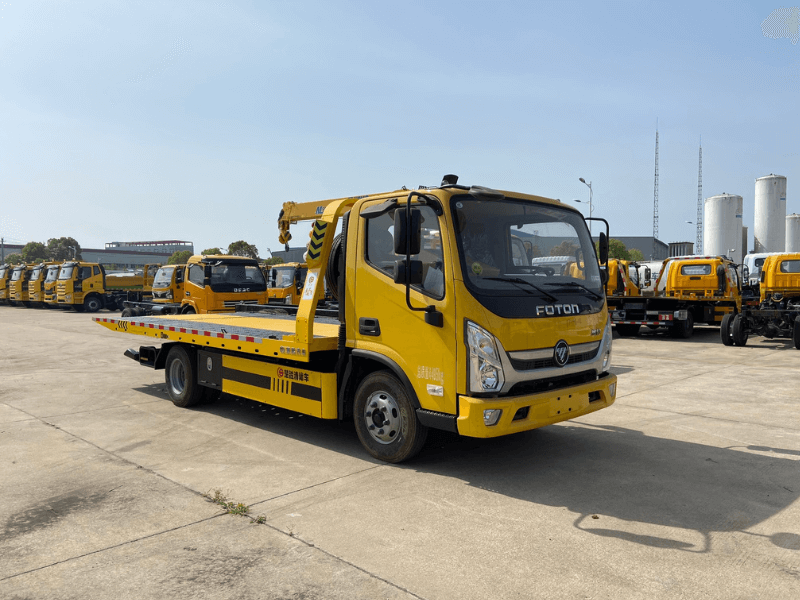Introduction
In the realm of waste management, the collection and disposal of municipal solid waste (MSW) are paramount to ensuring public health and environmental sustainability. Garbage compactor trucks play a crucial role in this process by efficiently collecting, compacting, and transporting waste from households, commercial establishments, and public spaces to disposal sites. This article explores the technology behind garbage compactor trucks, their benefits in managing MSW, and their impact on improving waste management practices in urban areas.
Evolution of Garbage Compactor Trucks
The concept of garbage compaction dates back to the early 20th century when municipalities began using specialized vehicles to collect and transport waste. These early designs were rudimentary compared to the advanced garbage compactor trucks we see today. Over the years, technological advancements and innovations have transformed these vehicles into highly efficient machines capable of handling large volumes of waste.
Modern garbage compactor trucks are equipped with hydraulic systems that compress the collected waste, allowing for more efficient use of space and reducing the frequency of trips to disposal sites. These trucks come in various sizes and configurations to cater to the specific needs of different municipalities and waste management companies.
https://www.heli-truck.com/tow-trucks-for-sale-types-features-and-tips/ of Garbage Compactor Trucks
There are several types of garbage compactor trucks designed to handle different types of waste and operating conditions. The most common types include:
1. Rear Loader Compactor Trucks: These trucks feature a hydraulic compactor at the rear of the vehicle, making them ideal for collecting waste from residential areas and narrow streets. The compactor crushes the waste as it is loaded into the truck, maximizing the amount of waste that can be transported in a single trip.

2. Front Loader Compactor Trucks: Front loader trucks are commonly used for commercial waste collection from dumpsters and large containers. These trucks have a hydraulic arm at the front that lifts and empties dumpsters into the compactor, making them suitable for handling bulky and heavy waste.
3. Side Loader Compactor Trucks: Side loader trucks are equipped with a mechanical arm on the side of the vehicle that lifts waste containers and empties them into the compactor. These trucks are often used in areas where curbside collection is preferred, such as residential neighborhoods with limited space for maneuvering.
4. Transfer Station Compactor Trucks: Transfer station trucks are designed to transport waste from collection points to transfer stations where the waste is consolidated and transferred to larger disposal facilities. These trucks are equipped with high-capacity compactors to handle large volumes of waste efficiently.
Benefits of Garbage Compactor Trucks
Garbage compactor trucks offer numerous benefits that contribute to the efficiency and effectiveness of waste management practices. Some of the key advantages include:
1. Increased Efficiency: By compacting waste at the collection site, garbage compactor trucks can transport larger volumes of waste in fewer trips, reducing fuel consumption and operational costs. This increased efficiency also results in fewer emissions and less traffic congestion in urban areas.
2. Improved Hygiene and Safety: Compacting waste reduces the risk of spillage and littering during transportation, improving the overall cleanliness and hygiene of the collection process. Additionally, the enclosed design of compactor trucks helps contain odors and prevents pests and vermin from accessing the waste.
3. Space Optimization: The compaction process significantly reduces the volume of waste, allowing for more efficient use of storage space within the truck. This optimization of space means that compactor trucks can collect more waste before reaching full capacity, reducing the frequency of trips and increasing productivity.
4. Environmental Sustainability: Garbage compactor trucks play a vital role in promoting environmental sustainability by reducing the amount of waste sent to landfills. The compaction process minimizes the volume of waste, extending the lifespan of landfill sites and reducing the environmental impact of waste disposal.
5. Cost-Effectiveness: While the initial investment in garbage compactor trucks may be higher than traditional waste collection vehicles, the long-term cost savings are significant. The efficiency and productivity gains achieved through compaction technology lead to lower operating costs and improved overall performance.
Impact on Waste Management Practices
The adoption of garbage compactor trucks has had a transformative impact on waste management practices in urban areas worldwide. Municipalities and waste management companies that utilize these vehicles have seen...
[Continue writing the article, discussing the impact of garbage compactor trucks on waste management practices, their role in promoting sustainability, case studies highlighting their effectiveness, maintenance considerations, and future trends in waste management technology.]
